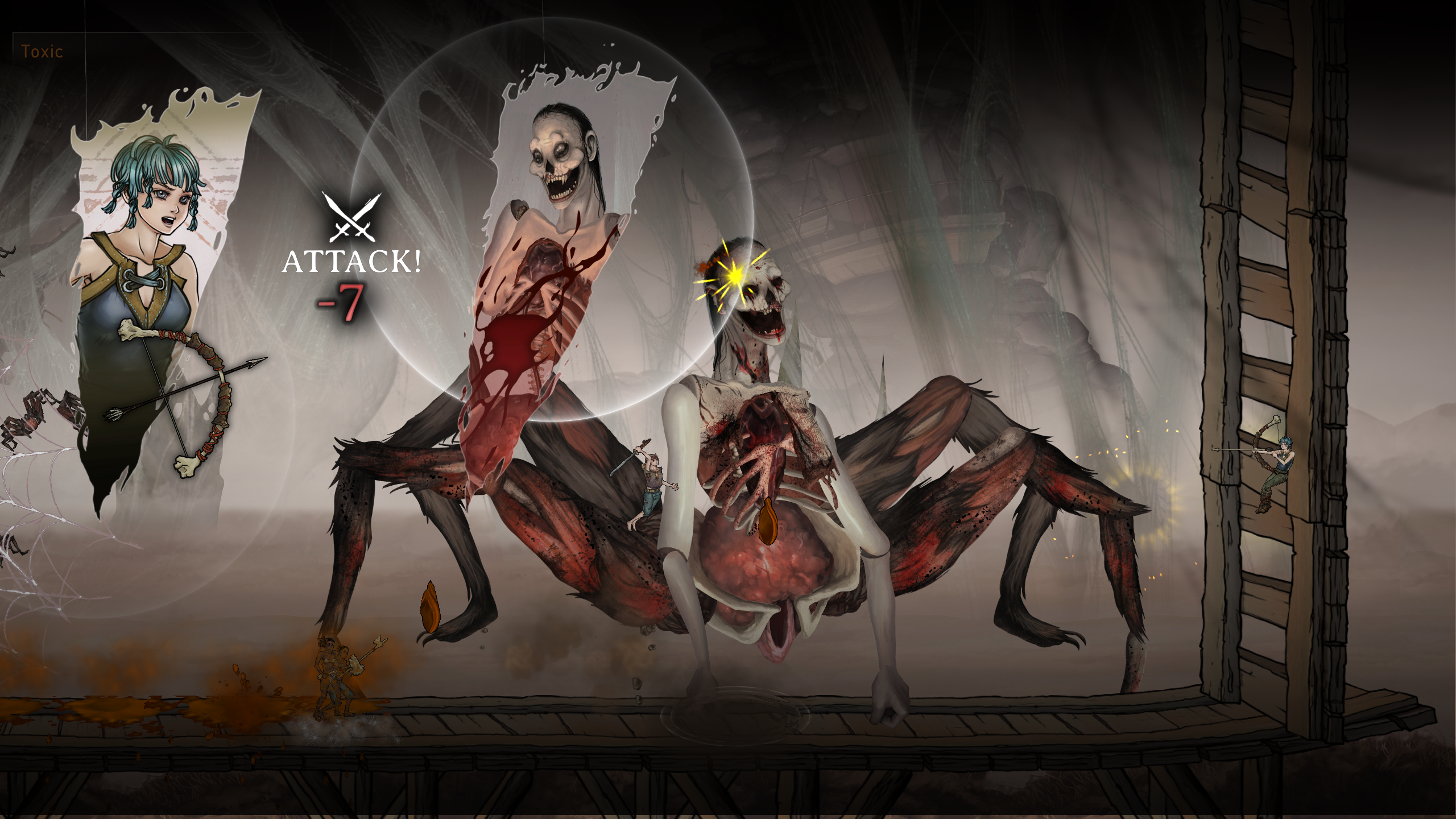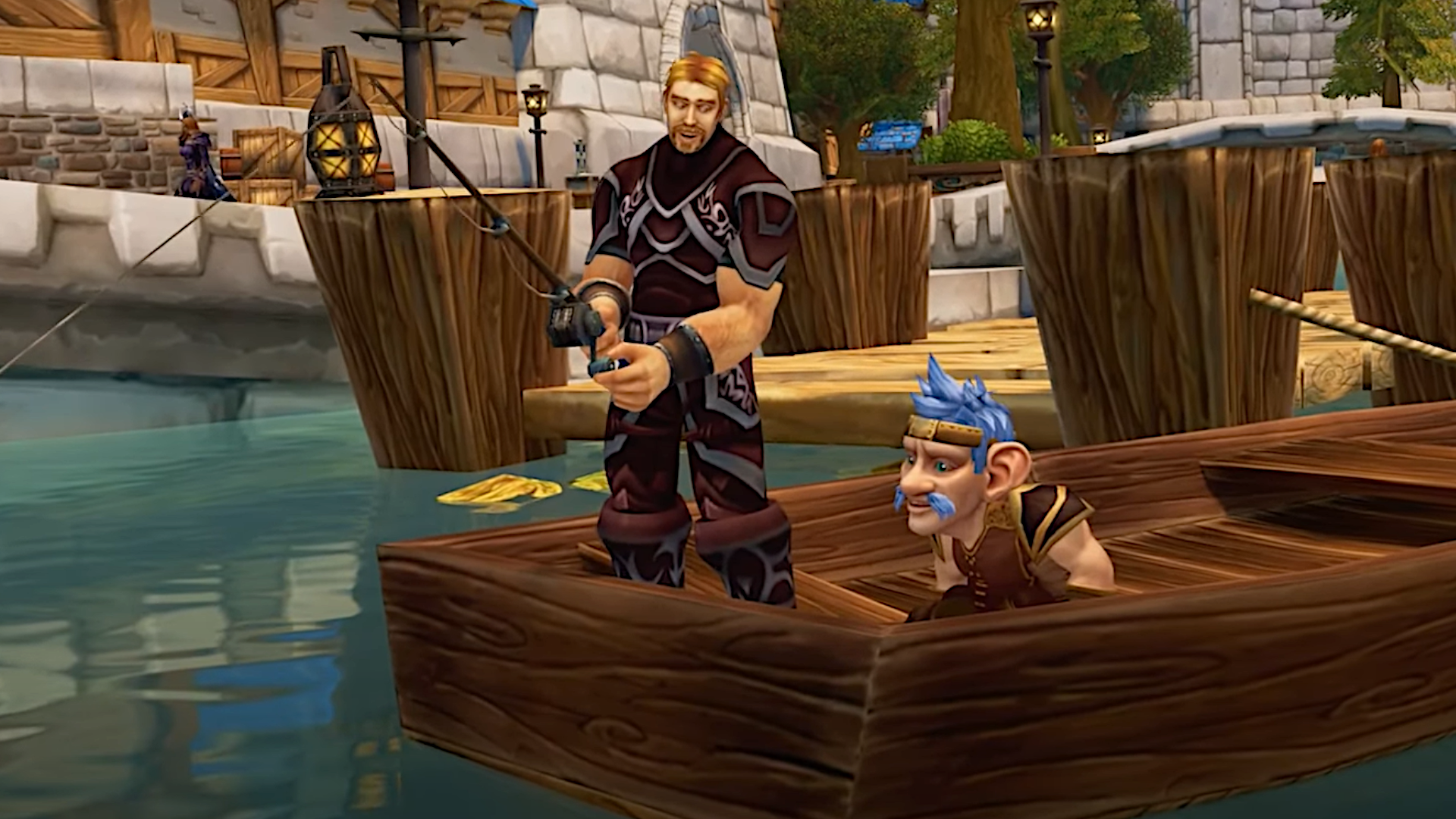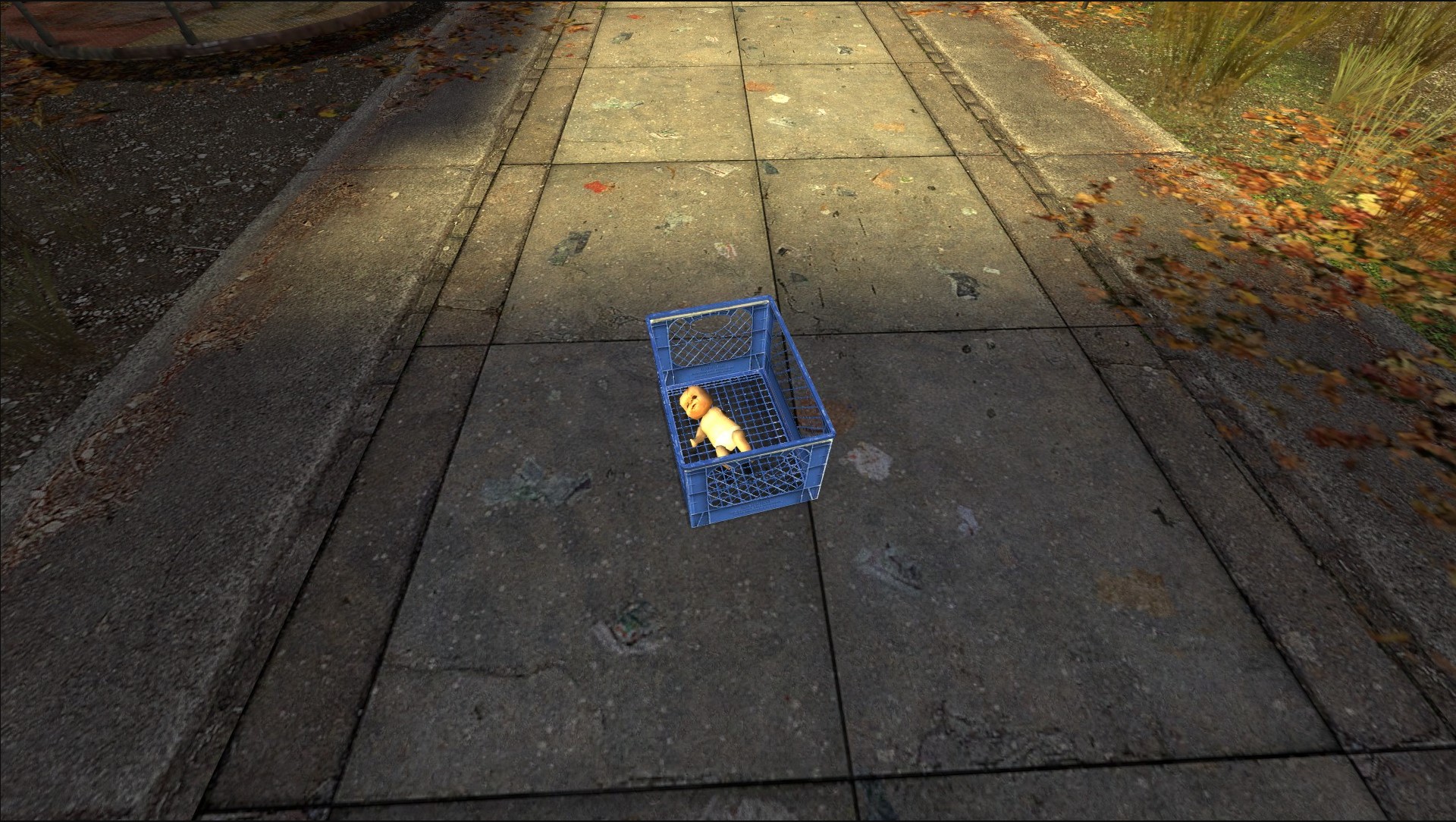
I just took down a full-on bullet hell boss—a many-armed, screen-filling fallen angel that would be the finale in any other game. Walls of projectiles with only small gaps to dodge between, orbiting death lasers, raining beams of light and meandering gravity orbs that flung me around. Pretty wild, but not out of place in your average platform shooter or action roguelike. But Tarnished Blood is a turn-based tactics game where you control a whole party, and it’s like nothing else around.
Released earlier this month and currently flying under most people’s radars, Tarnished Blood is one of those games that’s a hard sell simply because it refuses to be pigeonholed. It’s thematically inspired by grim, grisly and sometimes transgressive tabletop game Kingdom Death: Monster, but it plays entirely differently. The structure could be compared to Darkest Dungeon, with its town management and growing collection of wounds and traumas for your party, but instead of dungeon crawling, there’s dice-rolling challenges between your hunters and their prey each mission. The timeline-manipulating combat shares some ideas with Phantom Brigade (which, as an aside, is much-improved since I reviewed it), but has an entirely different feel due to its 2D platform-fighter mechanics. And the game’s singular focus on protracted throwdowns with massive bosses is unquestionably a bit Monster Hunter.
Risky business
But glimmers of familiarity aside, the experience of playing Tarnished Blood is like nothing else, and it might take a few hours of play just to click. But I think that it’s onto something special, and there’s a formula here that I really want to see expand over the course of its time in early access. So, what you get here for your money is a relatively slim but replayable slice of pseudo-roguelike adventure. You assemble your party (clad in rags and with simple wood and bone weaponry at first), send them out on monster hunts, and use everything you harvest to expand and upgrade your village, craft equipment and aim for bigger prey.
The actual process of hunting is a bit like playing a four-player Smash Bros round using tool-assisted frame-by-frame editing. Split up into turns of a few seconds long, your party members each have a limited number of action points to spend on movement, jumping, attacking or using special powers stolen from earlier bosses. Within your current turn, you can always see what the monster is going to do (which is good, as getting hit has harsh penalties), but there’s always some window of uncertainty on how the first moments of the next turn are going to play out, and the armor you equip can only mitigate risks and hits.
The actual process of hunting is a bit like playing a four-player Smash Bros round using tool-assisted frame-by-frame editing.
Knowing when to push and take risks or set things up for a smooth start of the next turn is half of the challenge. The other half is mentally juggling multiple targeted boss attacks, flying projectiles and the leap trajectories of your party members. It’s a satisfying dance, and when you pull off a perfect fight, breaking a monster’s body-parts one at a time until it collapses, then watching the real-time replay, it’s deeply gratifying. But there’s also drama to be had in the fights that go wrong. That hapless party member who got caught out and swallowed, failed a saving throw and got digested. The archer whose arm got shattered, effectively ending their career. The hammerer who spectacularly bounced off a monster’s head only to ricochet between three pieces of flying debris before they landed.
There’s some very clever risk/reward mechanics to the combat too, with each weapon type encouraging a different kind of danger. Archers can only score critical hits when dramatically leaping through arbitrary spots in the air that materialize each turn. Pikemen deal bonus damage to pinpoint targets on each monster’s body part, with a single part each turn highlighted for obliteration. Hammerers are inherently wild fighters, having to throw themselves at the enemy to do damage—the longer the flight arc, the better. It encourages dangerous play and moves that barely slip past a monster’s swings. It also looks cool as hell in end-of-fight replays as you watch your perfectly synced party dodging and weaving between every hit. Especially once you have a few monster powers, letting your party double-jump, spawn platforms, fling themselves out of portals or dig through the arena walls to attack from unusual angles.
Featured creatures
There’s only a handful of monster types in the current early access version, but they’re all radically different (and reasonably replayable) battles and each has at least one variant with a fresh look and often a very different move-set. There’s a giant mole-rat beast that digs through the floor and bursts out of walls, attacking at both ends with a long tongue and bladed tail. There’s a cosmic deity that remains relatively stationary but rains down all kinds of hell around you until you break enough of its limbs to make it cool off. There’s a horrible giant corpse-spider that spawns bouncing, biting minions from the ceiling that make for an unpredictable battlefield. Lastly (and most dynamically) there’s the ever-moving mushroomy core of a deadly sapient forest grove, full of platforms to hop between and encroaching thorny vines to avoid.
Given the creativity of the current set of bosses, I’d love to see more roll out over time, and hope the game finds enough of an audience to justify taking development as far as it deserves. There’s some rough edges in the current release, but they’re mostly in tutorialization, fine-tuning of balance and the script (there’s some clunky sentences and the occasional typo), but for the most part it feels like a compelling and replayable little game. I’ve yet to fully plumb its depths (and have yet to unlock any alternate starting tribes, each of which have their own gimmicks), but right now it feels like there could be a little more interplay between the simple town management and the more intense fighting. Even without the gears fully meshing there, this is such an exciting foundation here that I want to see this grow into something larger and more robust.
Tarnished Blood is available on Steam now for £16.99/$19.99, along with a demo which I highly recommend you try. There’s no indication of how long the game will remain in early access, but the developers say the first few months are going to be dedicated to tweaking, tuning and polishing what’s already there.



